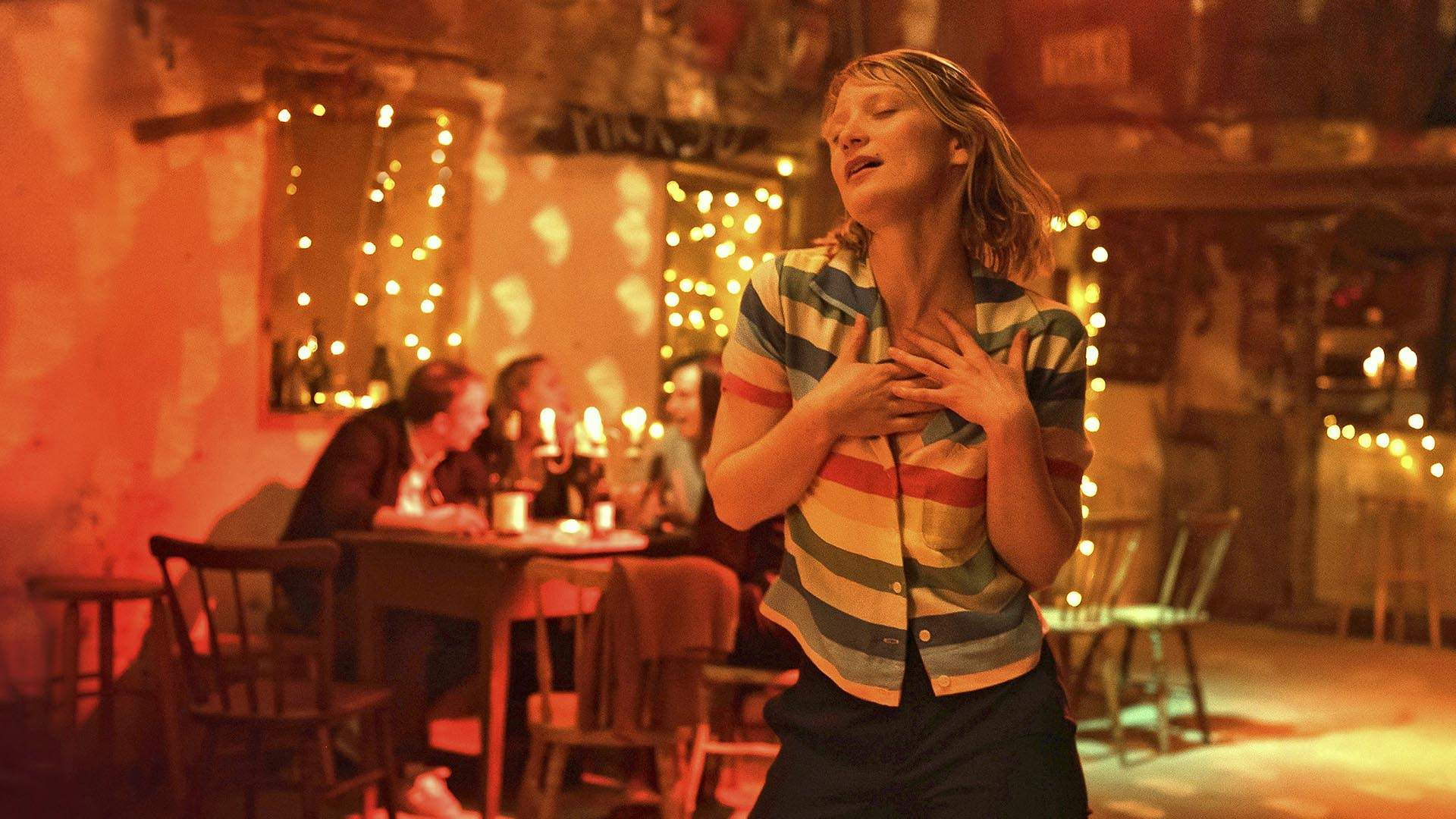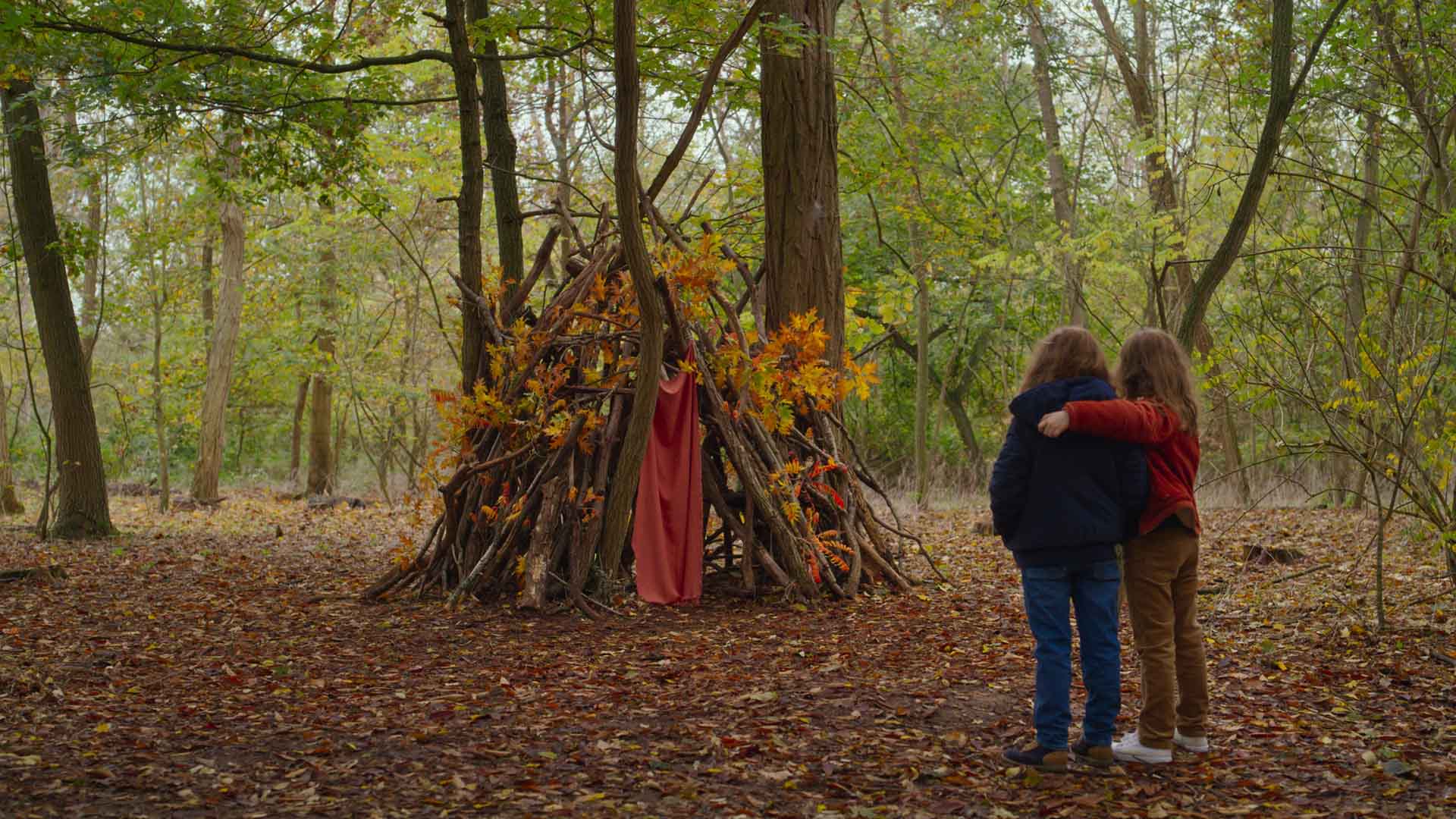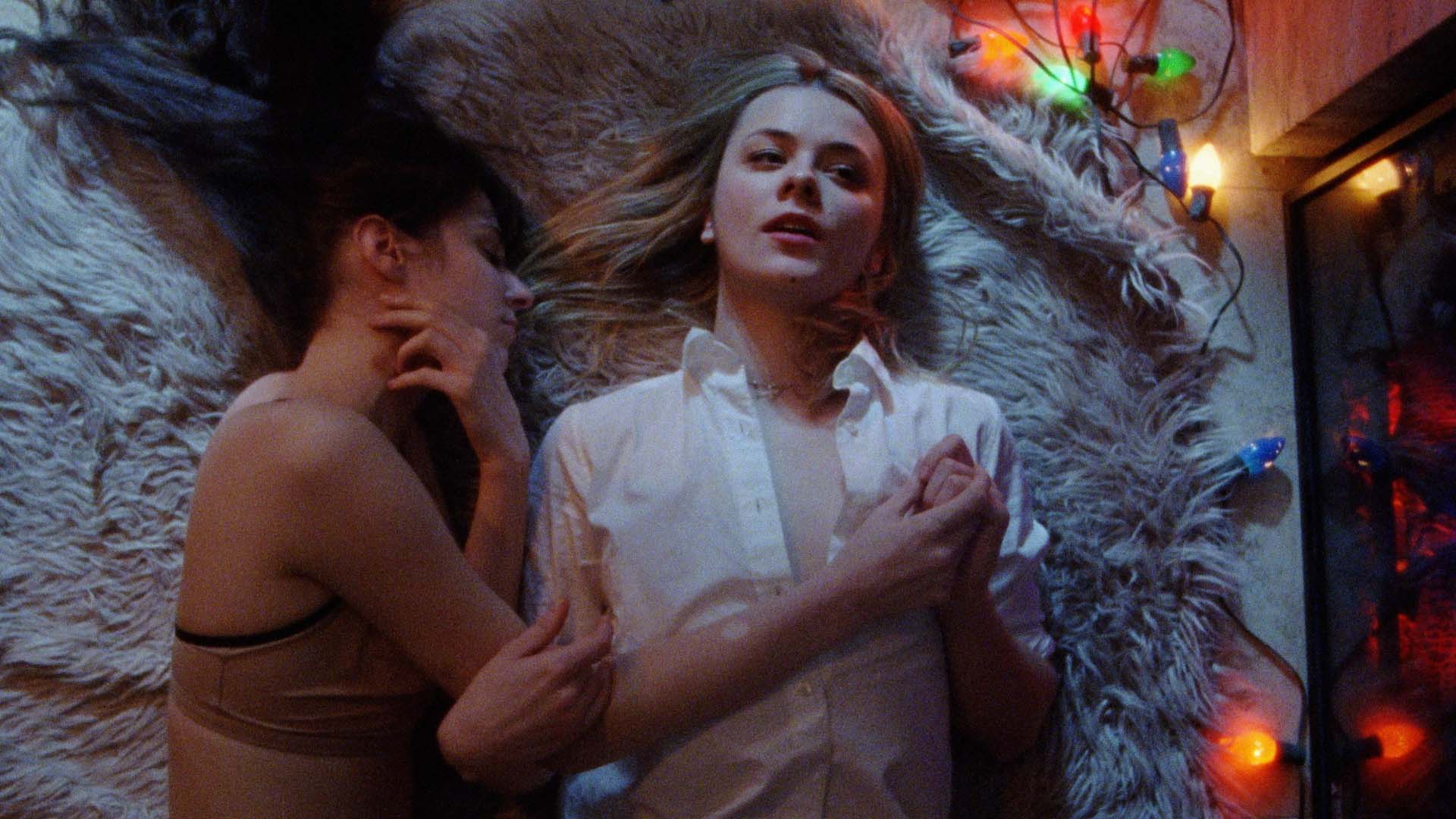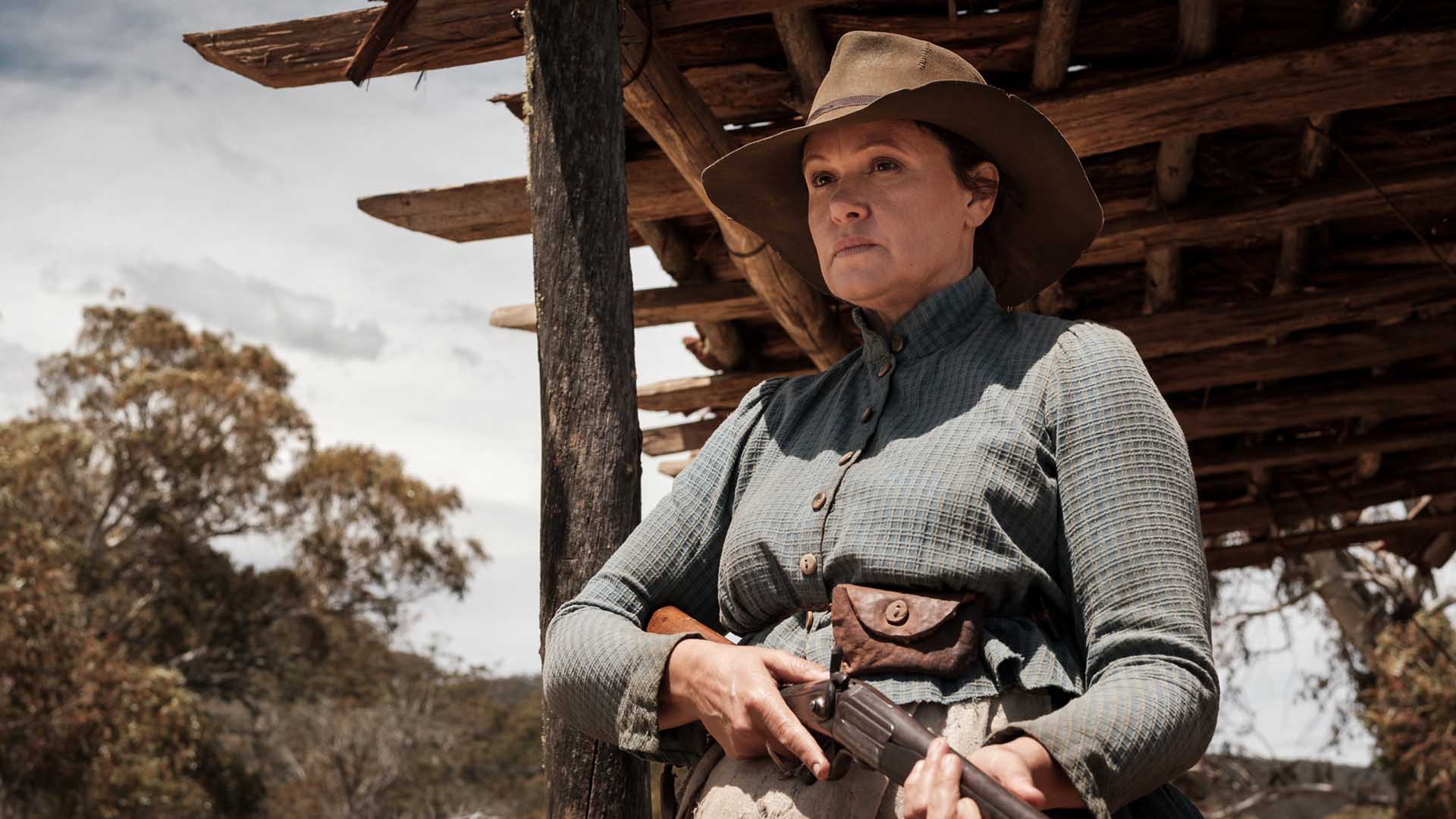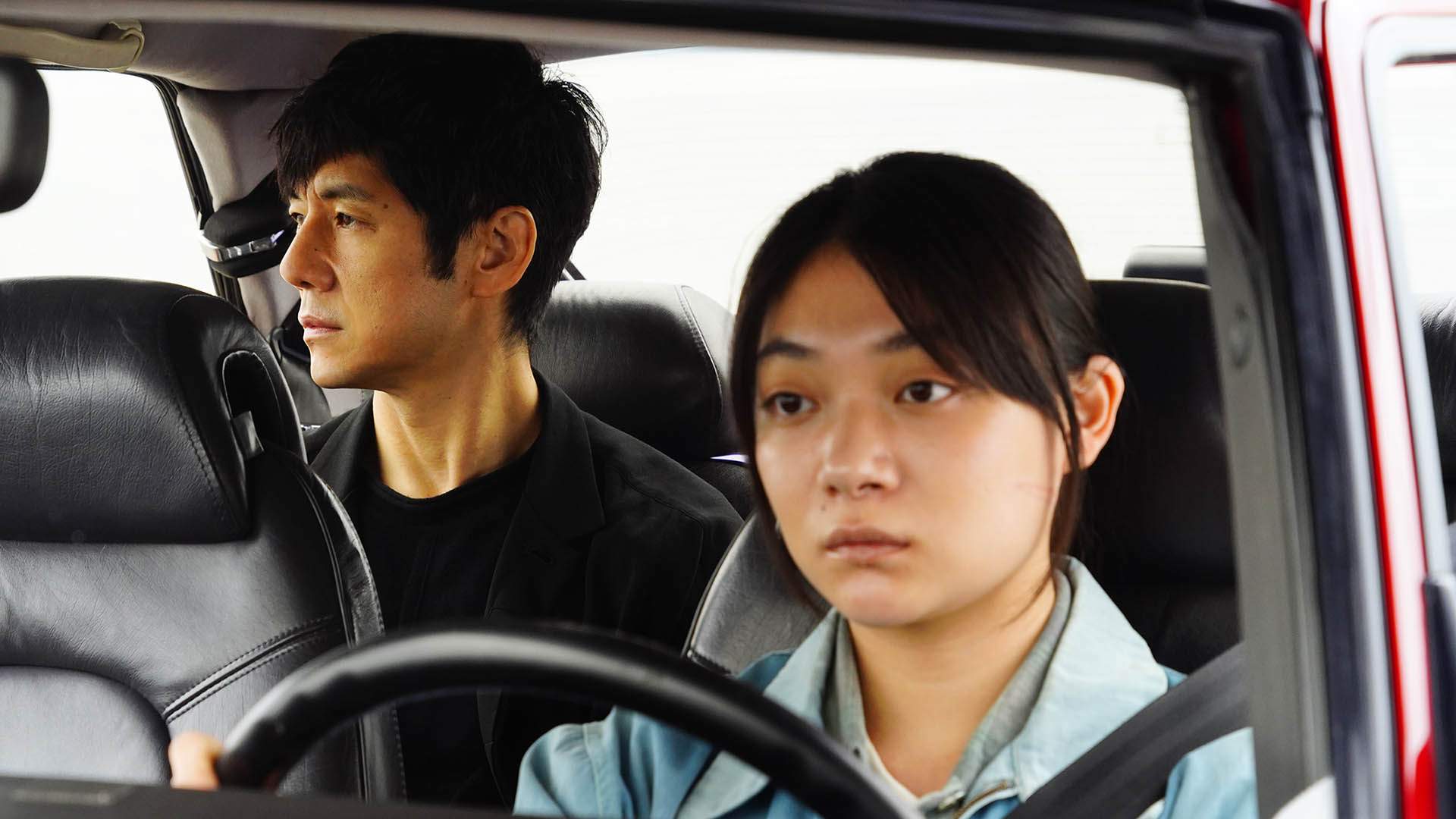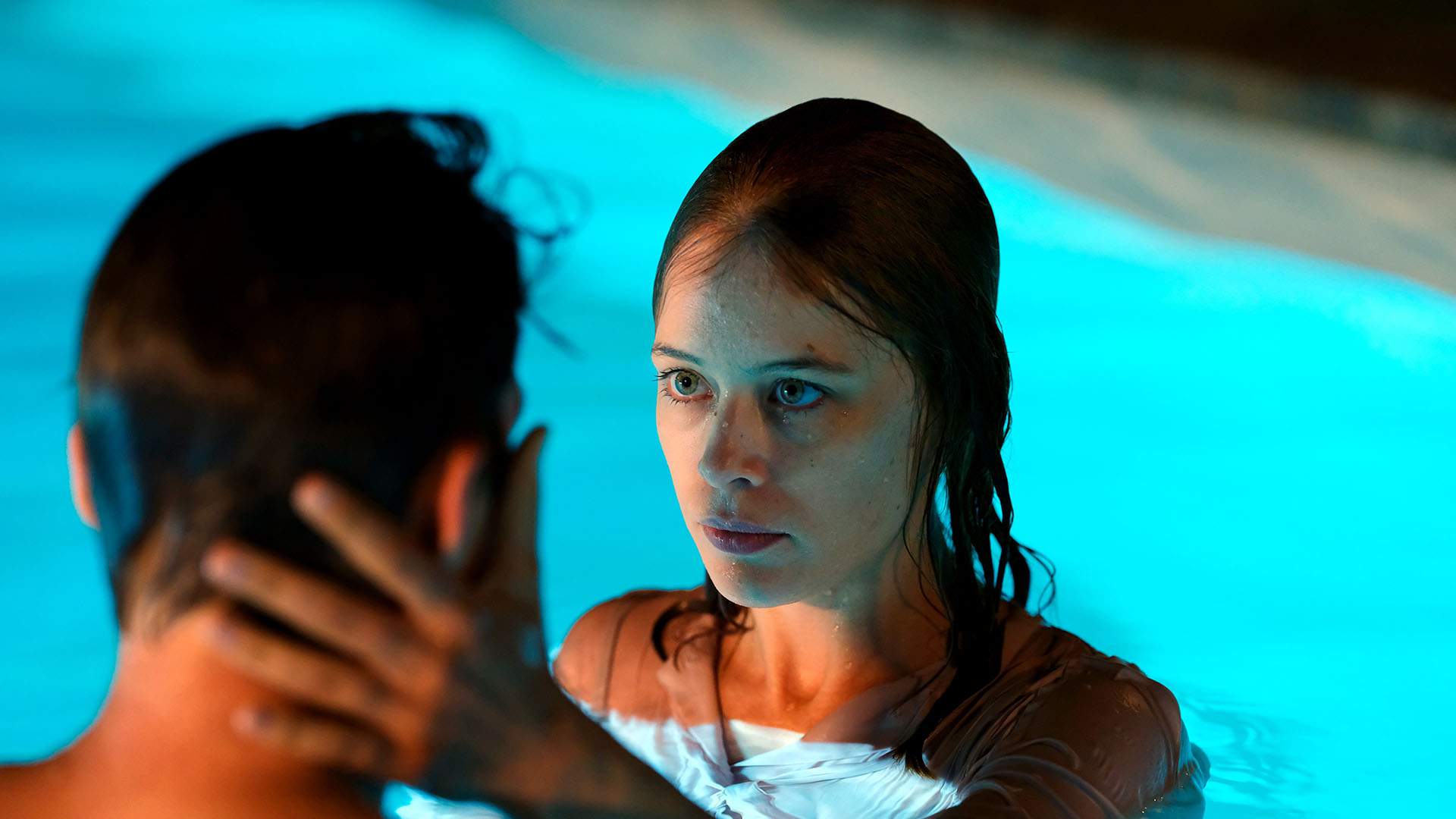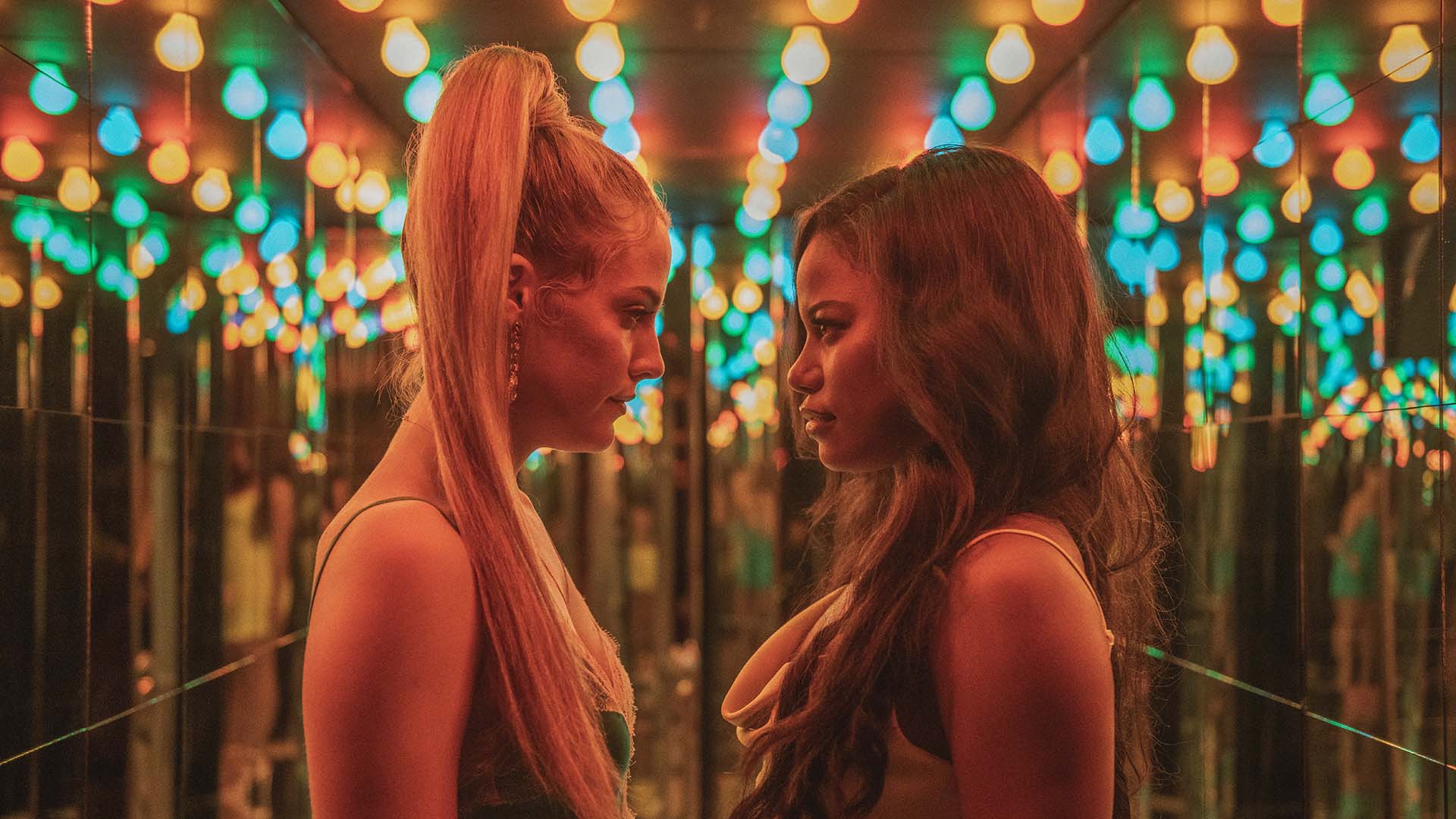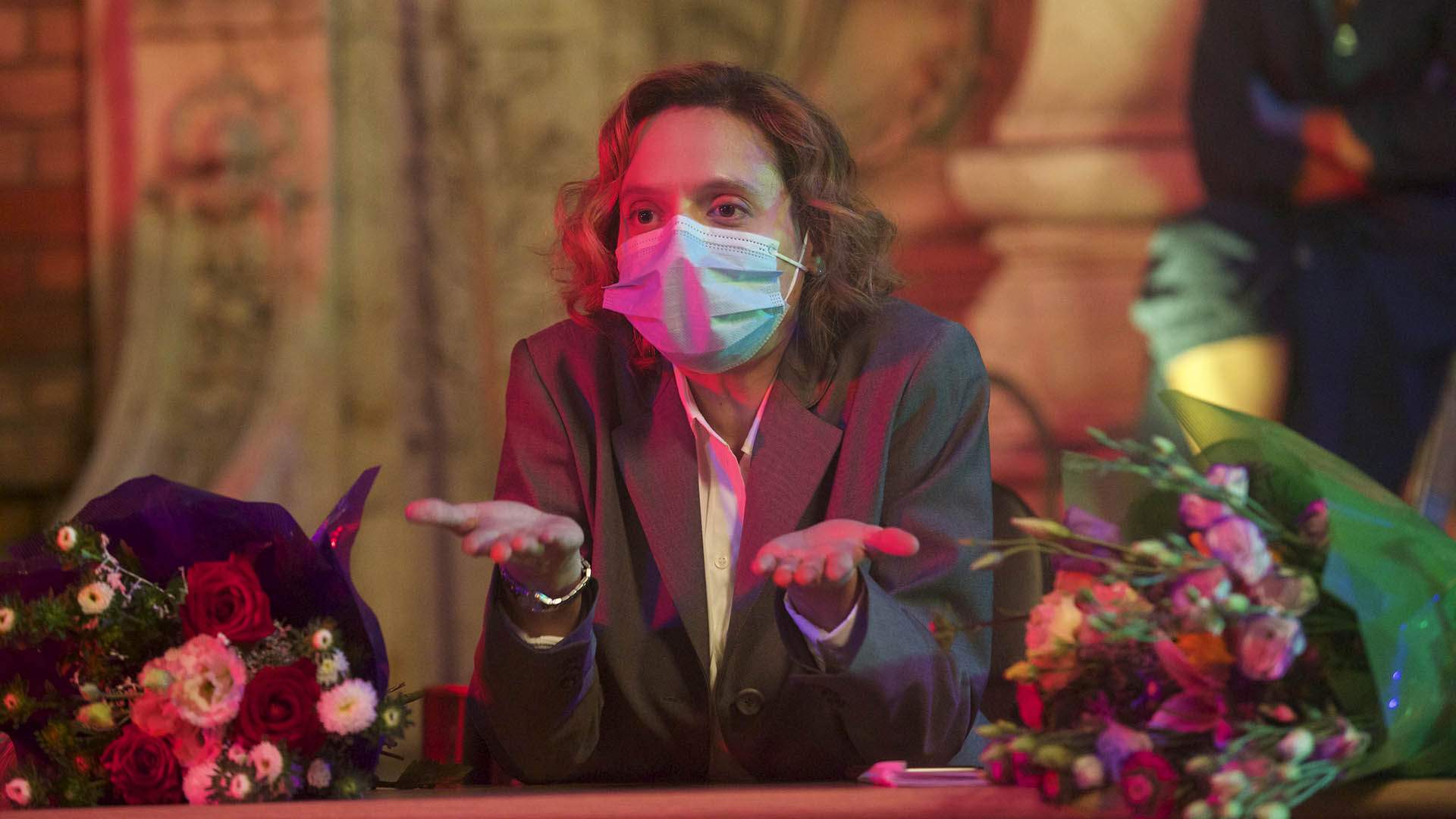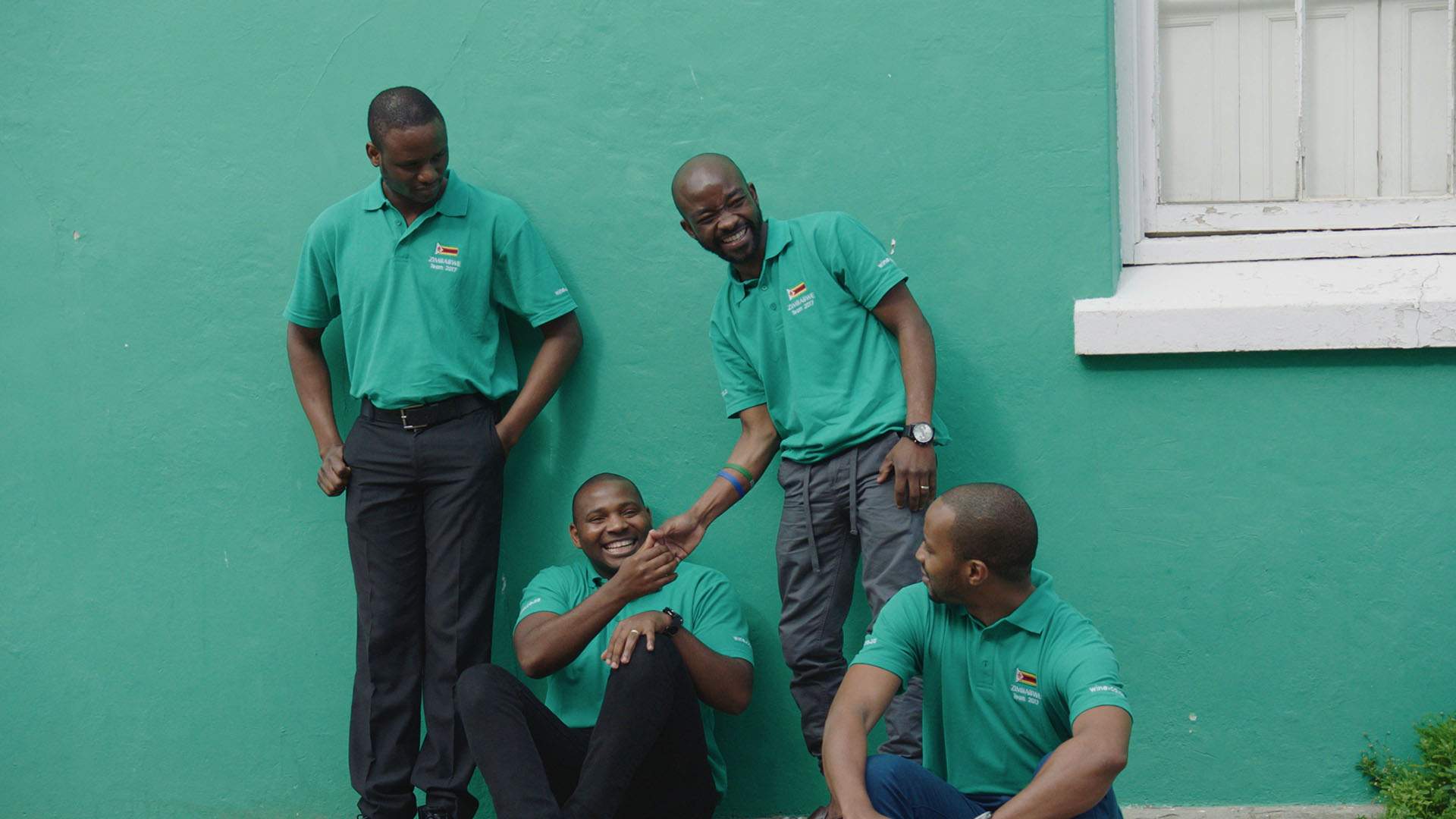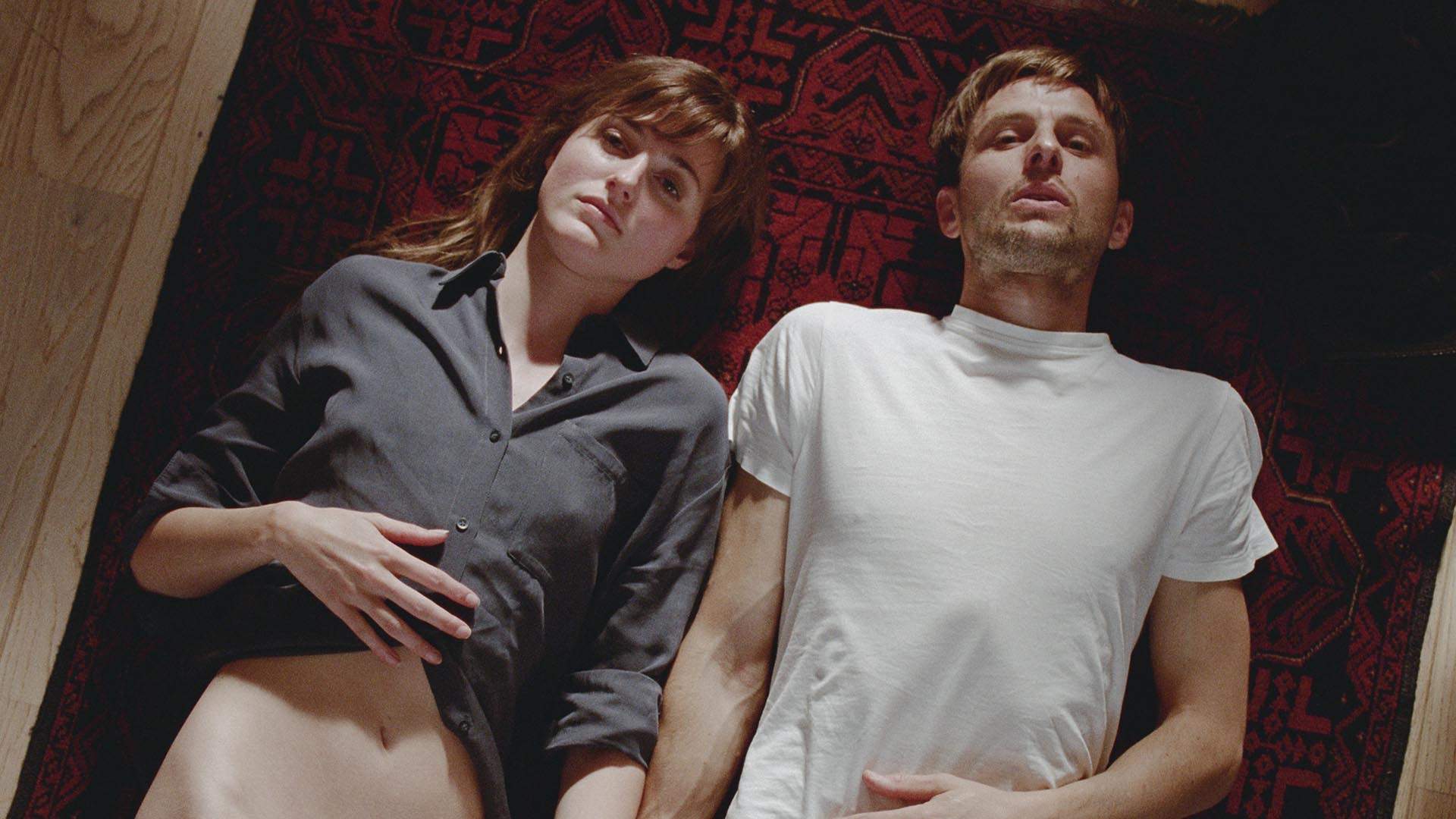Ten Standout Movies to Watch at the 2021 Brisbane International Film Festival
Exceptional snapshots of twentysomething life, Aussie revenge westerns, wild tweet-to-screen adaptations, an award-winner about a sex tape — they're all screening at this year's BIFF.
Every time that the Brisbane International Film Festival rolls around, something is a little different. After a decade of almost constant change, that's how it feels, at least. BIFF cycled through a few artistic directors, then found itself completely scrapped. It was replaced by a short-lived Asia Pacific-focused film fest, and then revived as BIFF again at Palace Cinemas. Next, it moved to the Gallery of Modern Art for three years, before getting another revamp in 2021 — with the folks behind the Gold Coast Film Festival now calling the shots.
One thing that's remained through all of those ups and downs: screening must-see films to devoted Brisbane movie lovers. Tweaks keep happening behind the scenes, but watching the latest and greatest flicks dance across the silver screen has always been the main attraction. So, from Thursday, October 21–Sunday, October 31, that's what's happening. Cinephiles, Christmas has come early.
BIFF's 2021 lineup includes more than 100 films — features, documentaries and shorts alike, spanning both brand new and stone-cold classic titles — all waiting for your super-eager eyeballs. That's a hefty lineup to wade through, so we started our festival viewing early. Here's ten standout BIFF highlights that we've seen, reviewed and heartily recommend.

PETITE MAMAN
Forget the "find someone who looks at you like…" meme. That's great advice in general, but it's mandatory if you've ever seen a film by Céline Sciamma. No one peers at on-screen characters with as much affection, attention, emotion and empathy as the French director, with her talent for truly seeing into hearts and minds shining again in Petite Maman. In Sciamma's latest delicate and exquisite masterpiece after Tomboy, Girlhood and Portrait of a Lady on Fire, she follows eight-year-old Nelly (debutant Joséphine Sanz) on a trip to her mother's (Nina Meurisse, Camille) childhood home. Nelly's grandmother (Margot Abascal, The Sower) has just died, and the house needs packing up. While her parents work, the curious child roves around the surrounding woods — and discovers Marion (fellow newcomer Gabrielle Sanz), who could be her twin.
Sciamma is exceptionally talented at many things, creating richly detailed and intimately textured cinematic worlds high among them. She doesn't build franchises or big fantasy realms, but surveys faces, spaces, thoughts and feelings — exploring them like the entire universes they are. That approach pulsates through every frame of Petite Maman like a heartbeat. The film itself resembles a gentle but soul-replenishing breeze in its rustic look and serene pacing, but it thrums with emotion and insight at every moment. It's a modern-day fairy tale, too, complete with a glorious twist, with this radiant, moving, smart and perceptive movie musing deeply on mothers, daughters and the ties that bind.

THE DROVER'S WIFE THE LEGEND OF MOLLY JOHNSON
Leah Purcell's resume isn't short on highlights thanks to Black Comedy, Wentworth and Redfern Now, but the Australian actor, director and writer clearly has a passion project. In 2016, she adapted Henry Lawson's short story The Drover's Wife for the stage. In 2019, she moved it back to the page. Now, she brings it to the screen via The Drover's Wife The Legend of Molly Johnson. Only minutes into her searing feature filmmaking debut, it's easy to see why Purcell keeps needing to tell this tale. In her hands, it's a story of anger, power, prejudice and revenge, and a portrait of a history that's treated both women and Indigenous Australians abhorrently. Aussie cinema hasn't shied away from the nation's problematic past (see also: Sweet Country, The Nightingale, The Furnace and High Ground); however, this is an unshakeably potent film.
In a fiery performance that bristles with steeliness, Purcell plays the eponymous and heavily pregnant Molly. In the process, she gives flesh, blood and a name to a character who wasn't ever afforded the latter in Lawson's version: a 19th-century Indigenous Australian woman left alone with her children on a remote property for lengthy stretches while her husband works. During his latest absence, new sergeant Nate Clintoff (Sam Reid, The Newsreader) and Aboriginal fugitive Yadaka (Rob Collins, Mystery Road) separately venture Molly's way. From there, this sometimes-stagey but always blistering western digs sharply into issues of race, gender and identity — and eagerly, shrewdly and ferociously draws cinematic blood.

DRIVE MY CAR
Inspired by Haruki Murakami's short story of the same name, Drive My Car's setup couldn't be simpler. Still recovering from a personal tragedy, actor and director Yusuke Kafuku (Hidetoshi Nishijima, Silent Tokyo) agrees to helm a stage version of Chekhov's Uncle Vanya in Hiroshima — but the company behind it insists on giving him a chauffeur for the duration of his stay. He declines, yet they contend it is mandatory for insurance and liability reasons, so Misaki (Toko Miura, Spaghetti Code Love) becomes a regular part of his working stint in the city. Friendship springs, slowly and gradually, but Murakami's name is one of the first signs that this won't follow a standard road. The other: Japanese filmmaker Ryûsuke Hamaguchi, who makes layered, thoughtful and probing reflections upon connection, as seen in his previous efforts Happy Hour and Asako I & II.
Drive My Car doesn't hurry to its narrative destination, clocking in at a minute shy of three hours, but it's a patient, engrossing and rewarding trip. It's a gorgeously shot and affectingly performed one, too, whether taking to the road, spending time with its central pair, or chronicling Yusuke's involving auditions and rehearsals. Another thing that Hamaguchi does disarmingly well: ponder possibilities and acceptance, two notions that echo through both Yusuke and Misaki's tales, and resonate with that always-winning combination of specificity and universality. Drive My Car is one of two new films by Hamaguchi currently doing the festival rounds, too, with Wheel of Fortune and Fantasy also screening at BIFF — so that's your festival double feature sorted.

THE WORST PERSON IN THE WORLD
Sometimes, a performance just flat-out shakes and startles you — in a good way, that is. In her 2021 Cannes Film Festival Best Actress-winning role, Norwegian actor Renate Reinsve (Phoenix) turns in that type of complex, layered, no-holds-barred and relatable portrayal. She's magnificent, and thoroughly deserves all of the shiny trophies sent her way. She plays Julie, a young Oslo resident who doesn't ever earn The Worst Person in the World's title, but nonetheless pinballs through the mess of her millennial life. Across 12 chapters, plus a prologue and epilogue, almost everything about the character's existence changes within the mere four years that the movie focuses on: dreams, goals, studies, careers, loved ones, boyfriends (including Bergman Island's Anders Danielsen Lie), apartments, friends and her perception of herself.
That aforementioned moniker stems from a comment that Julie spits her own way, actually, because she's often aware of her own chaos. Writer/director Joachim Trier (Thelma) is just as cognisant of how romantic dramedies like this tend to turn out, which both feeds and enables Reinsve's astonishing performance — because this isn't the usual cliche-riddled affair. Every up and down that comes Julie's way transcends tropes to contemplate what growing up, being an adult and forging a life is really like, including at both the sunniest and the most heartbreaking extremes. As a character study, The Worst Person in the World is a masterpiece. As a snapshot of an age and life stage, it's just as canny, insightful and excellent.

ZOLA
It wasn't just a Twitter thread — it was the Twitter thread. Whether you read it live as it happened, stumbled across the details afterwards or first heard about it via Zola's buzzy trailer, calling this stranger-than-fiction tale a wild ride is always an understatement. Its opening words, as also used in this tweet-to-screen adaptation, happen to capture the vibe perfectly: "you wanna hear a story about how me and this bitch fell out? It's kind of long, but it's full of suspense." In the film, that phrase comes via the eponymous Detroit waitress (Taylour Paige, Ma Rainey's Black Bottom). The other person she's referring to: a woman (Riley Keough, The Lodge) she serves at work, then joins on a road trip to Florida. The minutiae is best discovered by watching, but saying that Zola's getaway with her new pal doesn't turn out as planned is really just the starting point.
Paige is fierce and finessed as Aziah 'Zola' Wells, Keough adds another tricky yet memorable performance to her resume (see also: American Honey), Succession's Nicholas Braun twists his Cousin Greg persona and Colman Domingo (Candyman) proves scarily commanding. That's all crucial, but this is writer/director Janicza Bravo's (Lemon) film. Wondering how you adapt a series of tweets into a movie? Bravo approaches the task with not just flair, energy and enthusiasm, but with a dreamlike vibe and a clear understanding of social media's role in our lives. This is exactly what a flick based on tweets should be — and, among its many delights (including the score and the cinematography), it features the smartest urination scene you're ever likely to see.

BERGMAN ISLAND
Each filmmaker walks in the shadows of all who came before them — and as the cinema's history lengthens, so will those penumbras. With Bergman Island, French director Mia Hansen-Løve doesn't merely ponder that idea; she makes it the foundation of her narrative, as well a launching pad for a playful and resonant look at love, work and creativity. Her central couple, both filmmakers, literally tread in the footsteps of the great Ingmar Bergman. Visiting Fårö, the island off Sweden's southeastern coast that he called home and his base, Chris (Vicky Krieps, Old) and Tony Sanders (Tim Roth, The Misfits) couldn't escape his imprint if they wanted to. They don't, of course, as they're searching for as much inspiration as they can find; however, the idea of being haunted by people and their creations soon spills over to Chris' work.
These Fårö escapades only fill half of the movie, because Bergman Island also brings Chris' budding screenplay to life. There, fellow filmmaker Amy (Mia Wasikowska, Blackbird) visits an island, too — dancing to ABBA and crossing paths with her ex Joseph (The Worst Person in the World's Anders Danielsen Lie). That tumultuous relationship is as bedevilled by other art and the past as Chris' quest to put pen to paper. And, via the film-within-a-film concept, there's a sense of mirroring that couldn't spring any firmer from Bergman himself. That said, the end result is as savvy and soulful as anything on Hansen-Løve's resume (including the stellar Eden and Things to Come) — and, due to Krieps and Wasikowska, as exceptionally acted.

UNDINE
For the second time in as many films, German writer/director Christian Petzold teams up with Paula Beer and Franz Rogowski, but you could never accuse them all of doing the same thing twice. Back in 2018, the trio turned Transit into a war-torn romance that mused on conflict's lingering scars. Here, they reinvent a German myth about a water spirit who can only turn human via love. A familiar chemistry lingers, though, as it's meant to. Whenever directors and actors keep collaborating — especially when directors retain multiple actors across different movies — that's built into the fabric of the film. As viewers, we can't help recalling our knowledge of their shared past. It's just how we respond to art, to people, and to connections. A movie not only about romance, but about the impact of the past on the present, Undine provokes and rewards this reaction.
Undine (Never Look Away's Beer, the 2020 Berlinale Silver Bear winner for Best Actress for her efforts here) is a historian who guides museum tours about Berlin's origins. When her boyfriend Johannes (Jacob Matschenz, Babylon Berlin) breaks up with her suddenly, she warns him that she'll have to kill him. Then she meets industrial diver Christoph (Rogowski, A Hidden Life), but even as their love blossoms, her previous relationship isn't easily overcome. Petzold is no stranger to pondering the tides of history that just keep ebbing, flowing and swelling (see also: Barbara and Phoenix); however, in the enchanting, beguiling, beautifully shot Undine, he's at his most haunting.

THE SCARY OF SIXTY-FIRST
When Succession roves over New York's skyline, it gleams with wealth and privilege, a world that the stellar HBO satire sharply cuts into at every chance it gets. As one of the show's supporting cast members, Dasha Nekrasova slides into that realm, but that's not her only dalliance with the city's architecture, power brokers and all that both represent. The Scary of Sixty-First, her feature directorial debut, also savages the rich and seemingly consequence-free. More accurately, it clasps onto a real-life story that's made that case inherently, abhorrently and monstrously. There's no gentle way to put it, but the fact that Nekrasova plays a woman investigating whether a bargain Upper East Side duplex was once one of Jeffrey Epstein's "orgy flophouses" says plenty about this purposefully provocative conspiracy thriller-slash-horror/comedy.
College pals Addie (Betsey Brown, Assholes) and Noelle (co-screenwriter Madeline Quinn) can't believe their luck when they find the cheap property, even if it does visibly need a clean (and have mirrored ceilings). From night one, however, the literal nightmares begin — and soon they're spying blood stains, scratched walls and eerie tarot cards. Enter Nekrasova's paranoid stranger, who comes bearing the Epstein news. Addie and Noelle take the revelation in vastly different ways, and The Scary of Sixty-First keeps boldly twisting its 70s and 80s-influenced frames (and Eyes Wide Shut and Rosemary's Baby-influenced, too) in hellish directions. Uncompromising and compelling, this slap in the face of a movie really isn't easily forgotten.

BAD LUCK BANGING OR LOONY PORN
"Banging" is the certainly word for it; when 2021 Berlinale Golden Bear winner Bad Luck Banging or Loony Porn begins, it's with high school teacher Emi (Katia Pascariu, Beyond the Hills) and her camera-wielding husband (first-timer Stefan Steel) having loud, enthusiastic, pink wig-wearing sex — and filming it. Romanian director Radu Jude (I Do Not Care If We Go Down in History as Barbarians) shows the explicit footage as others will see it, because others will indeed see it: the students at Emi's school, their parents and her fellow teachers. All genitalia and thrusting and lustful talk (and shouted queries through the door from whoever is looking after the couple's child), this graphic opening also makes a statement. So many people with the film's frames will take issue with it as vocally as Emi and her partner are enjoying themselves, but Jude definitely isn't one of them.
What follows is a razor-sharp satire of a world that's so indifferent to so much, but so unaccepting of carnality. The film wields that notion as a weapon, all as Emi and Bucharest's other residents also navigate the pandemic. In the cinema verite-style first section, Emi rushes around the city on foot, learning of the sex tape backlash while surrounded by everyday hostilities and vulgarities. Next, Jude unleashes scathing and playful cine-essay snippets about Romania's past, the planet's present, human behaviour, and how porn is used as both a scapegoat and anaesthetic. Then, Emi is interrogated by parents and teachers, their judgement and hypocrisy on full display — in the climax to an already brilliant, biting and bleakly hilarious achievement.

BLIND AMBITION
From fleeing Robert Mugabe's Zimbabwe to taking their nation's first-ever team to the World Wine Blind Testing Championships in Burgundy, Joseph, Tinashe, Marlvin and Pardon have quite the story to tell. The quartet met in South Africa, where they each individually made their home long before they crossed paths. They all also found themselves working with wine, despite not drinking it as Pentecostal Christians — and, in the process, they discovered a knack for an industry they mightn't have even contemplated otherwise. That's the tale that Blind Ambition relays, and it's a rousing and moving one. Indeed, it won't come as a surprise that the movie won Australian filmmakers Warwick Ross and Rob Coe (Red Obsession) this year's Tribeca Film Festival Audience Award for Best Feature Documentary.
Blind wine testing is a serious business; the first word isn't slang for inebriation, but describes how teams sample an array of wines without knowing what they're drinking. Then, they must pick everything from the country to the vintage to the varietal within two minutes of sipping. As stressed both verbally and visually throughout the doco, there's a specific — and very white — crowd for this endeavour. Accordingly, Team Zimbabwe instantly stands out. Heralding diversity is one of their achievements; their infectious joy, pride and enthusiasm for the field, for competing at the Olympics of the wine world, for the fact that their plight has taken them from refugees to finding a new calling, and for opening up the world to African vino, is just as resonant.

Looking for more BIFF recommendations? We've taken a look at a couple of others already this year. So, you can also check out our thoughts on Sisters with Transistors, The Girl and the Spider and The Witches of the Orient, as well as Strong Female Lead.
The 2021 Brisbane International Film Festival runs between Thursday, October 21–Sunday, October 31. For further information, or to buy tickets, head to the festival website.
